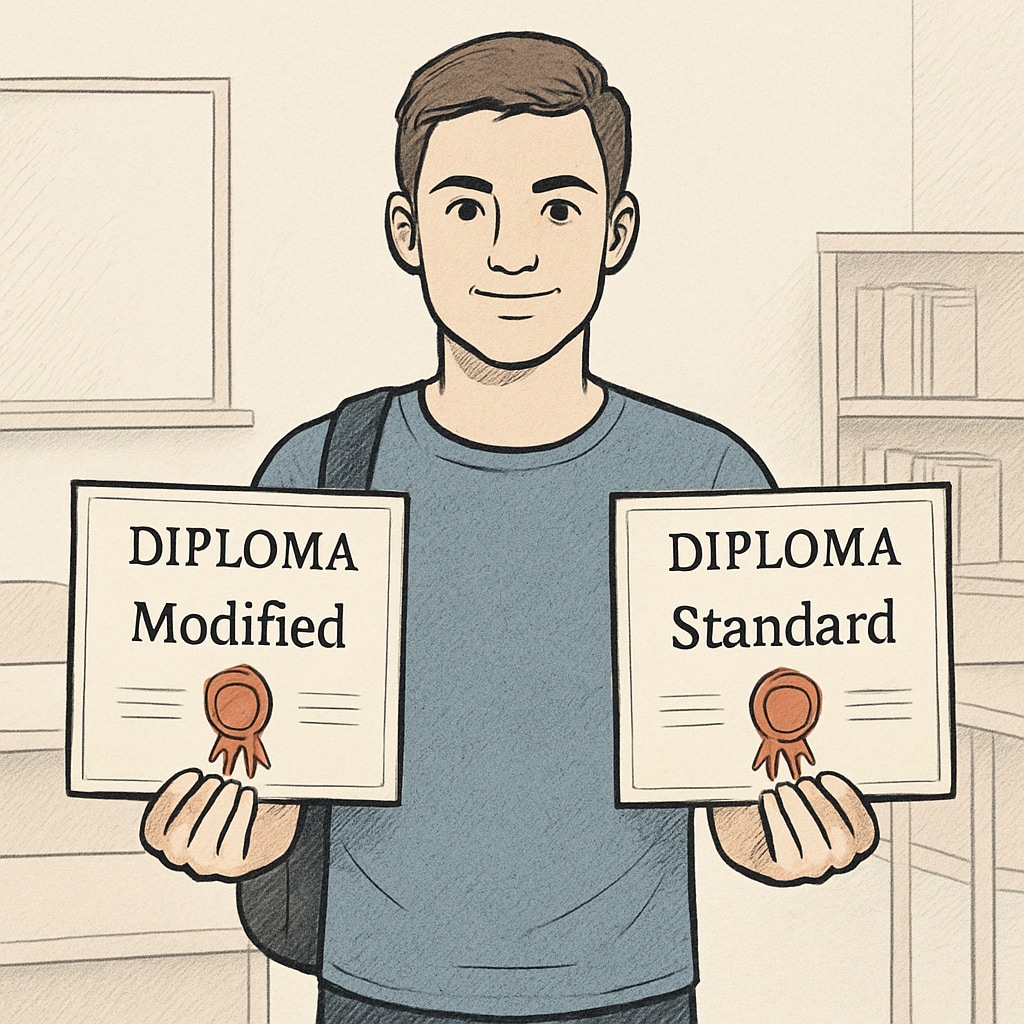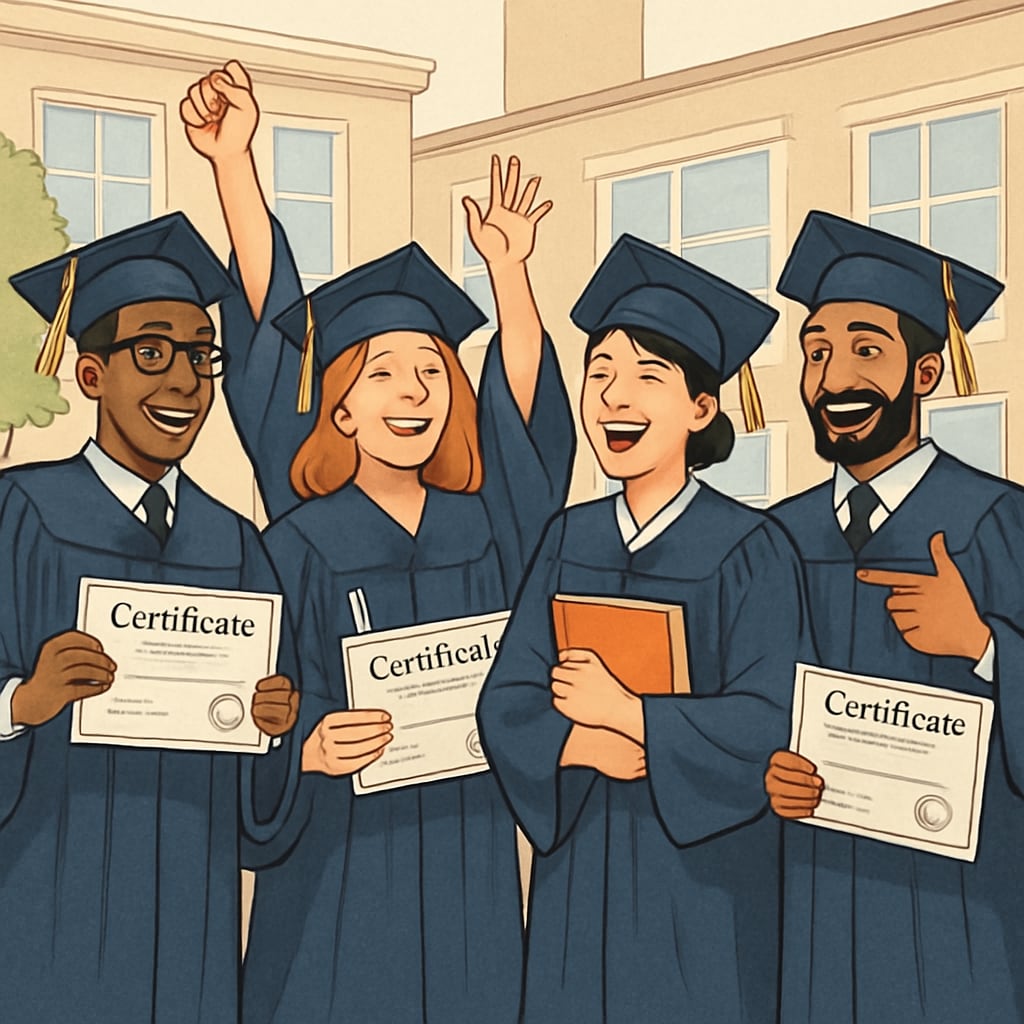The journey through high school is rarely a straight path, and for some students, receiving a modified diploma instead of a standard diploma can lead to feelings of regret and uncertainty about the future. A modified diploma is typically awarded to students who require special accommodations to complete their education, often due to learning disabilities or other challenges. While this pathway can be essential for academic success, students and their families may later wonder if transitioning to a standard diploma is possible. In this article, we will explore the distinctions between these diplomas, the challenges students may face, and practical steps to move forward confidently.
Understanding the Difference Between Modified and Standard Diplomas
The primary difference between a modified diploma and a standard diploma lies in the academic requirements. A standard diploma typically involves meeting all state-mandated coursework and testing benchmarks. In contrast, a modified diploma often adjusts these requirements to accommodate individual learning needs. For example, students may complete fewer credit hours or follow a curriculum tailored to their abilities.
While a modified diploma serves as a formal recognition of educational achievement, it may not always meet the eligibility criteria for certain colleges, universities, or career opportunities. For students who hold a modified diploma, this limitation can raise questions about whether transitioning to a standard diploma is both feasible and beneficial.

Can You Transition from a Modified to a Standard Diploma?
The short answer is that transitioning from a modified diploma to a standard diploma is challenging but not impossible. The feasibility depends on various factors, including state education policies, the extent of coursework completed, and the resources available to the student.
Here are some potential pathways for transitioning to a standard diploma:
- Returning to High School: Some states allow students to return to high school after receiving a modified diploma to complete the additional coursework required for a standard diploma.
- Alternative Education Programs: Community colleges and adult education centers often offer programs designed to help students earn a standard diploma or an equivalent credential, such as the GED (General Educational Development) certificate.
- Online Learning Platforms: With the rise of online education, students can access courses that align with standard diploma requirements and complete them at their own pace.
It’s important to consult with school counselors or educational advisors to determine the best course of action based on individual circumstances.
Overcoming the Emotional and Psychological Challenges
For many students, holding a modified diploma can evoke feelings of inadequacy or regret, especially if peers have earned standard diplomas. These emotions, while valid, should not define one’s self-worth or potential. Instead, students can focus on strategies to overcome these psychological hurdles:
- Seek Support: Connecting with a counselor or support group can provide a safe space to process emotions and develop a positive mindset.
- Set Realistic Goals: Whether transitioning to a standard diploma or pursuing alternative career pathways, setting achievable goals can help build confidence and motivation.
- Celebrate Progress: Recognizing and celebrating milestones, no matter how small, is vital for maintaining a sense of accomplishment.

Redefining Success Beyond the Diploma
While the type of diploma earned can influence certain opportunities, it is not the sole determinant of success. Skills, perseverance, and adaptability often play a more significant role in shaping one’s future. For students with modified diplomas, exploring alternative pathways can open doors to fulfilling careers and personal growth. Options include:
- Vocational Training: Many industries value hands-on experience and certifications from trade schools over traditional academic credentials.
- Community College: Starting at a community college can provide a stepping stone to further education or direct entry into the workforce.
- Entrepreneurship: Building a business or pursuing creative endeavors can be a rewarding way to leverage unique talents and interests.
As lifelong learning becomes increasingly valued, the emphasis shifts from traditional diplomas to continuous skill development. For more information on alternative education options, visit alternative education on Britannica.
Conclusion: Embracing a Bright Future
Whether you hold a modified diploma or are considering transitioning to a standard diploma, remember that your educational journey is unique. While reflecting on past decisions is natural, the key is to focus on the opportunities that lie ahead. By understanding your options, seeking support, and redefining success on your own terms, you can create a fulfilling and meaningful future.
Regret may be a part of the process, but it doesn’t have to define your story. With determination and the right resources, you can navigate the path that best aligns with your goals and aspirations.


